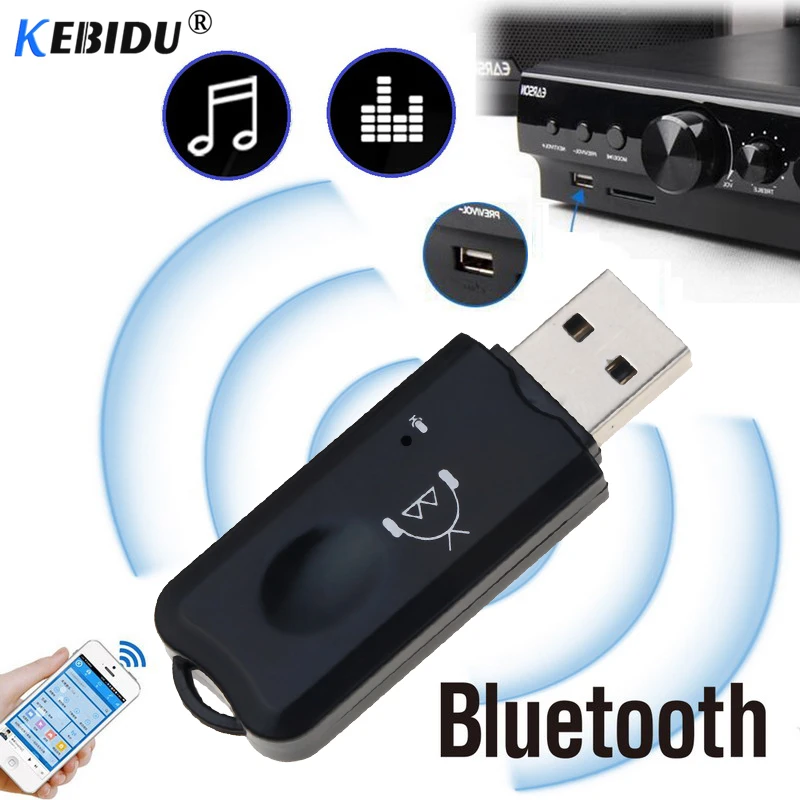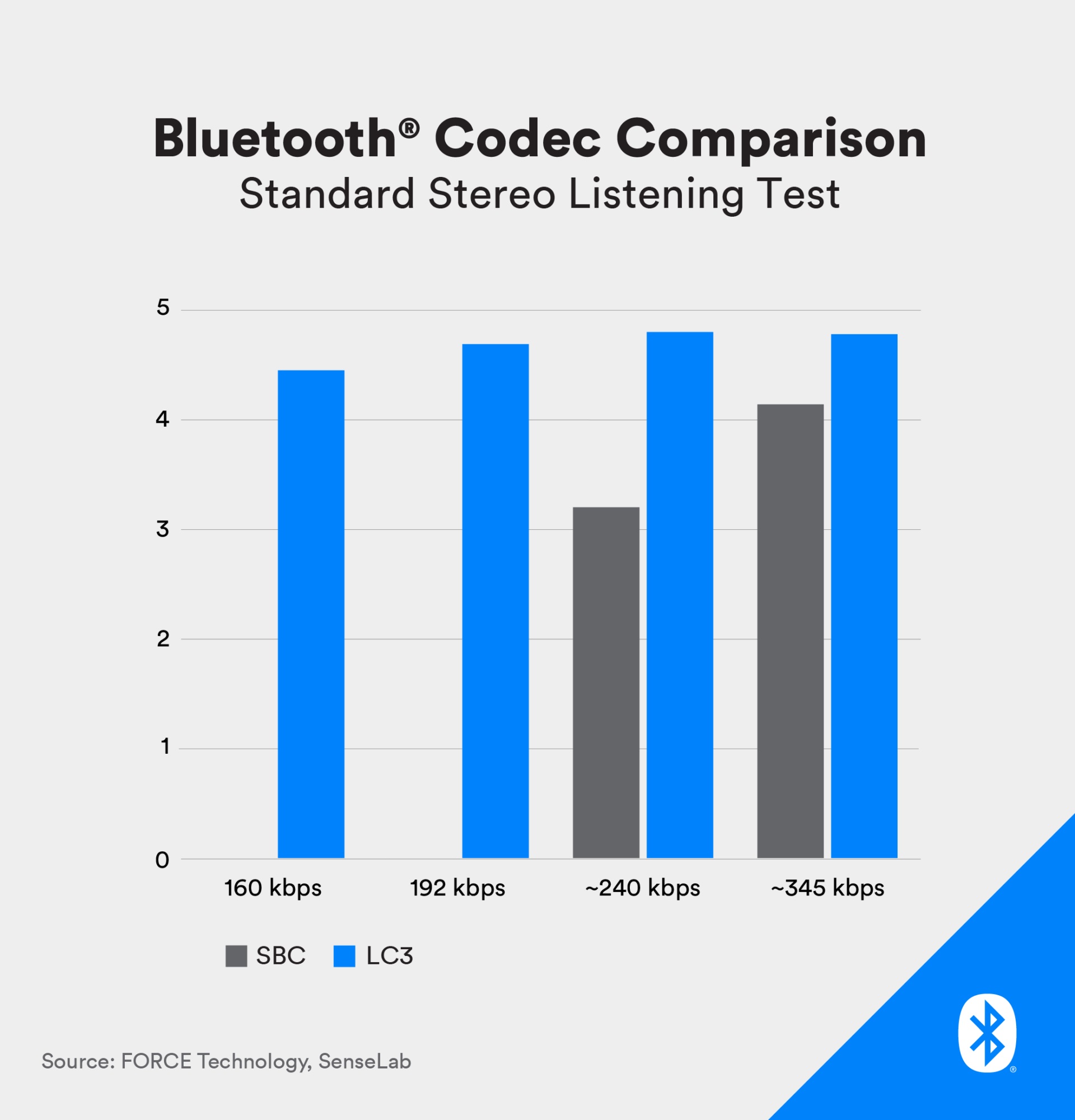Out Of This World Tips About Is Aux Higher Quality Than Bluetooth
:max_bytes(150000):strip_icc()/4LW4138227__02-e58c20ac234f4a17a0005d99562a3688.jpg)
The Best Seamless Bluetooth Audio Receivers Of 2024 Receiver
The Great Sound Showdown
1. Decoding the Audio Battle
Alright, let's get real. We've all been there, staring at our phones, wondering if we should use that trusty aux cable or just let Bluetooth do its thing. Which one actually gives you better sound? Is it all just a matter of convenience, or is there a real sonic difference at stake? Its a debate as old as well, as old as Bluetooth, I guess. Let's dig in, shall we?
The short answer? It's complicated. Like most things in the audio world, there's no single, definitive winner. Both aux cables and Bluetooth have their strengths and weaknesses. Factors like the quality of your devices, the Bluetooth codec being used, and even the type of music you're listening to can all play a part. So, buckle up, because were about to untangle this audio enigma.
First off, remember the good old days when everything plugged into everything else? Simpler times! Aux cables, those humble connectors with a 3.5mm jack, offer a direct, analog connection. This means the audio signal travels straight from your device to your headphones or speakers without any digital processing in between. The potential for pristine sound is there, assuming everything else in your setup is up to snuff.
Think of it like this: the aux cable is like a straight, paved road for your audio signal. No detours, no stop signs, just a clear path. That's why audiophiles (those super-serious sound enthusiasts) often swear by them. They believe that this direct connection preserves the original sound quality better than Bluetooth can.

10 Best Bluetooth Power Speakers For HighQuality Sound 2025
Bluetooth
2. The Convenience Factor
Ah, Bluetooth. The reason we can listen to music in our cars, on our wireless headphones, and pretty much anywhere else without being tethered to a cable. Its undeniably convenient. But how does it stack up against the aux cable in terms of sound quality? Well, thats where things get interesting.
Bluetooth is a wireless technology, meaning it transmits audio signals through the air using radio waves. To do this, your audio file has to be compressed and encoded. Think of it like squeezing a big watermelon into a smaller box for shipping. Some information is inevitably lost in the process, especially if the compression is aggressive. When the signal reaches your headphones or speakers, it's decoded and played back. The decoding process tries to recreate the original audio, but it's not always perfect.
However, Bluetooth technology has come a long way! Newer codecs like aptX HD and LDAC are designed to minimize the loss of audio quality during compression. These codecs can handle higher bitrates, which means they can transmit more audio data. This translates to a more detailed and accurate sound compared to older, less efficient codecs like SBC.
So, while Bluetooth might not always be able to match the theoretical potential of an aux cable, it's often "good enough" for most listeners. The convenience of wireless connectivity is a huge draw, and the advancements in Bluetooth technology have made the sound quality surprisingly good.

Купить Автомобильная электроника USB AUX Bluetooth V2.1 Receiver
The Technical Stuff
3. Understanding the Audio Jargon
Okay, let's dive a little deeper into the technical side of things. Understanding codecs and bitrates is crucial for truly understanding the difference between aux and Bluetooth. Dont worry; we'll keep it simple.
A codec (short for "coder-decoder") is like a translator for audio files. It encodes the audio signal for transmission and decodes it on the receiving end. Different codecs use different compression algorithms, which affect the sound quality. As mentioned earlier, SBC is the most basic Bluetooth codec, while aptX, aptX HD, and LDAC are higher-quality alternatives. The better the codec, the less audio information is lost during compression.
Bitrate refers to the amount of data transmitted per second. Higher bitrates generally mean better sound quality because more audio information is being transmitted. For example, CD-quality audio has a bitrate of around 1411 kbps. Bluetooth codecs like SBC typically have lower bitrates, while aptX HD and LDAC can support much higher bitrates, getting closer to CD quality.
So, if you want the best possible Bluetooth sound quality, make sure your devices support a high-quality codec like aptX HD or LDAC. You'll also need to ensure that the audio files you're listening to are of a high enough quality to begin with. No codec can magically turn a low-resolution MP3 into a pristine audio masterpiece.

Maedhawk Aux Bluetooth 5.3 Receiver, Car Adapter 3.5mm
Real-World Listening
4. The Human Ear Test
Now for the million-dollar question: can you actually hear the difference between aux and Bluetooth in a real-world listening scenario? The answer, as always, depends on a few factors. Your hearing ability, the quality of your equipment, and the type of music you're listening to all play a role.
If you're using a high-end pair of headphones or speakers and listening to lossless audio files (like FLAC or WAV), you might be able to discern a subtle difference between aux and Bluetooth. The aux cable might sound slightly more detailed and dynamic, with a more open soundstage. However, the difference might be subtle, even for trained ears. Think of it like the difference between a really good cup of coffee and an amazing cup of coffee. Both are good, but one just has that extra something.
On the other hand, if you're listening to compressed MP3s on a cheap pair of earbuds, the difference between aux and Bluetooth will likely be negligible. The limitations of the audio file and the headphones will mask any potential improvements offered by the aux cable.
Ultimately, the best way to determine which sounds better to you is to do some A/B testing. Try listening to the same song on both aux and Bluetooth and see if you can hear any noticeable differences. Dont be afraid to experiment and trust your own ears! After all, sound quality is subjective.

Bluetooth Transmitter Receiver 3.5mm SOOMFON V5.0 Aux
So, Aux Higher Quality Than Bluetooth?
5. The Final Judgement
Alright, weve weighed the pros and cons, delved into the tech specs, and considered the practicalities. So, is aux higher quality than Bluetooth? The unsatisfying but honest answer is: it depends!
In theory, an aux cable can deliver higher sound quality due to its direct, analog connection. However, in practice, the difference is often subtle and may not be noticeable to most listeners, especially with the advancements in Bluetooth technology and the availability of high-quality codecs. If you value convenience and wireless freedom, Bluetooth is a great option. If you're an audiophile seeking the absolute best sound quality and don't mind being tethered to a cable, then aux might be the way to go.
Perhaps the best advice is to choose the connection method that best suits your needs and preferences. Do you want ultimate convenience for jogging? Choose Bluetooth. Do you want the best sound for a critical listening session at home? Perhaps aux is better. There is no correct solution; you have to decide for yourself. In the end, the most important thing is that you enjoy the music!
Ultimately, there isnt a massive advantage to aux; Bluetooth has improved and is continuing to evolve. If you cant tell the difference — and many cant — then maybe convenience should win.

Frequently Asked Questions
6. Your burning questions answered!
Q: Will using a better Bluetooth codec really make a difference?A: Absolutely! Using codecs like aptX HD or LDAC can significantly improve the sound quality of Bluetooth audio, especially if you're listening to high-resolution audio files and using high-quality headphones or speakers. Think of it like upgrading from standard definition to high definition — the difference is noticeable!
Q: Is there a difference between the different types of aux cables?A: Generally, no. While there are more expensive aux cables on the market that claim to offer better sound quality, the differences are often minimal and may not be audible to most listeners. A well-shielded cable from a reputable brand should be sufficient.
Q: What if my device doesn't have a headphone jack? Am I stuck with Bluetooth?A: Sadly, yes, but there are alternatives! You could look into USB-C or Lightning to 3.5mm dongles. These adapters can offer a digital connection that might be a bit better than Bluetooth in some cases, but again, it will depend on the quality of the dongle. Ultimately, wireless is convenient — but you need to weigh up whats more important to you as a listener.